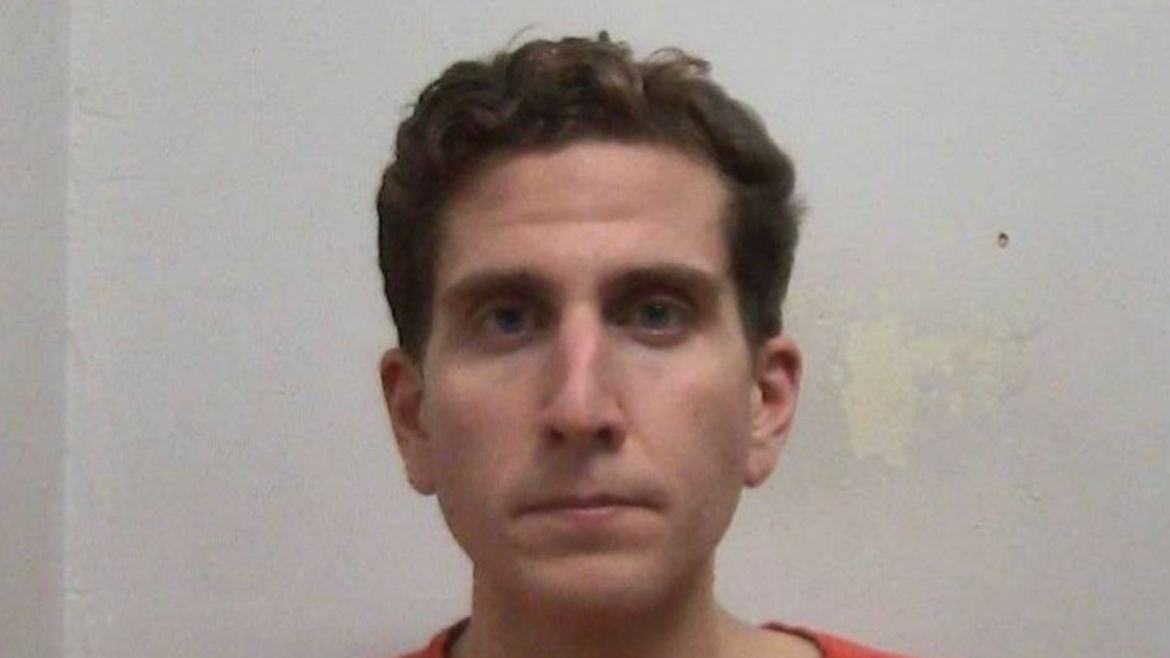Bryan Kohberger briefly appeared in court on Thursday where he waived his right to a speedy preliminary hearing.
Bryan Kohberger briefly appeared in court on Thursday where he waived his right to a speedy preliminary hearing.
This means that the Washington State University PhD student, who is accused of murdering four University of Idaho students in the early morning hours of Nov. 13, will not appear in a courtroom again until June 26.
Kohberger and his defense team also filed a request for discovery this week, asking among other things for information about a "co-defendant" in the case.
The probable cause affidavit does not identify a co-defendant and authorities have not suggested that Kohberger may have had an accomplice when he allegedly murdered Madison Mogen, 21; Kaylee Goncalves, 21; Xana Kernodle, 20; and Ethan Chapin, 20.
Inside Edition Digital previously reported that Kohberger did ask members of law enforcement if they had arrested another individual in connection with these murders after he was taken into custody last month.
In the court filing submitted by his public defender Ann Taylor, Kohberger requested: "Any written or recorded statements by a co-defendant, and the substance of any relevant oral statement made by a co-defendant whether before or after arrest in response to interrogation by any person known by the co-defendant to be a peace officer or agent of the prosecuting attorney, or which are otherwise relevant to the offense charged."
That is just one of the 18 requests for discovery Kohberger submitted to the court.
A few of his additional requests include:
- Drug tests: "Provide a copy of all documentation generated as a result of performed drug tests by the State’s agent for drug identification purposes, including types of testing performed in this case, testing procedures, reagents and/or solvents used in testing, comparative analyses performed, and number of experiments performed in each test."
- Inducement: "Provide to the defendant all documents pertaining to the existence and substance of any payments, promises of leniency, preferential treatment or other inducements or threats made to prospective witnesses."
- Electronic surveillance: "Disclosure of the defendant’s status as an aggrieved person as defined by 18 U.S.C. § 2510(11), if applicable, and copies of all records and recordings related to all electronic surveillance, and set forth in writing the circumstances thereof."
- Identification: "Disclosure of whether a defendant, or any other person, was identified by lineup, show up, photo spread or similar identification proceeding relating to the offense charged, and production of any pictures utilized or resulting therefrom and the names, addresses and telephone numbers of all identifying witnesses."
That last request is notable because the probable cause affidavit claims a roommate saw an individual leave the house right around the time of the murders.
The affidavit claims that the killer walked right by another roommate living in the home, but spared her life.
"D.M. stated she opened her door for the third time after she heard the crying and saw a figure clad in black clothing and a mask that covered the person's mouth and nose walking towards her. D.M. described the figure as 5' 10" or taller, male, not very muscular, but athletically built with bushy eyebrows," reads the affidavit.
"The male walked past D.M. as she stood in a 'frozen shock phase.' The male walked towards the back sliding glass door. D.M. locked herself in her room after seeing the male."
The affidavit does not mention anything about that roommate identifying Kohberger as the individual she saw that night.
There is alsolittle information regarding motivein the initial court filings that have been made public, and the details of the actual crime have been redacted from the probable cause affidavit.
The affidavit does allege, however, that Kohberger, 28, may have been stalking his victims for months before their deaths based on the proximity of his cell phone to the victims' home.
A public defender assigned to Kohberger's case after his arrest in Pennsylvania said that his client is innocent of the charges that have been filed against him.
Prosecutors and Kohberger will now have five months to build their cases before they are due back in court this Summer.
Kohberger will remain behind bars without bail until that hearing.






